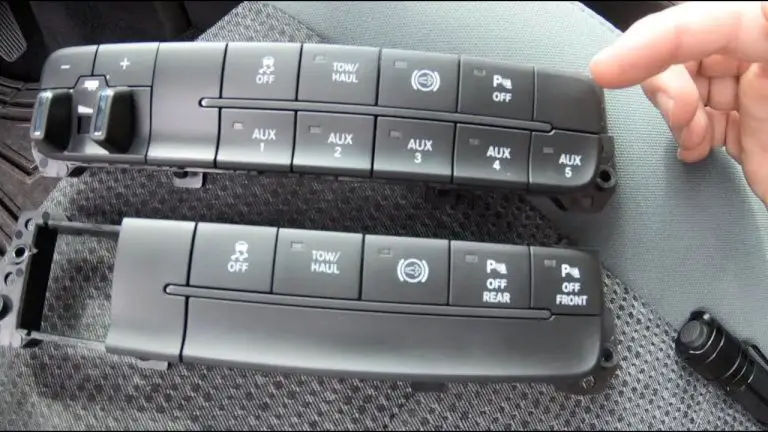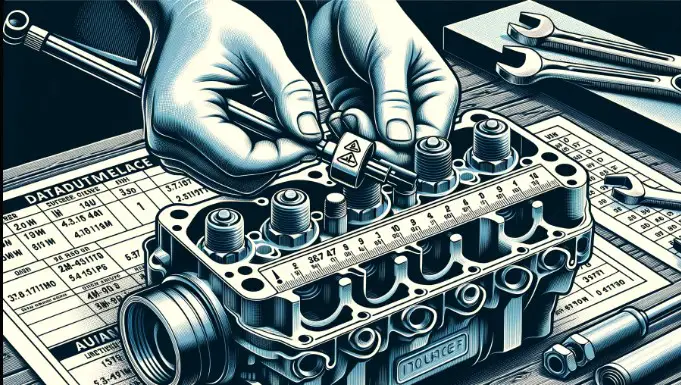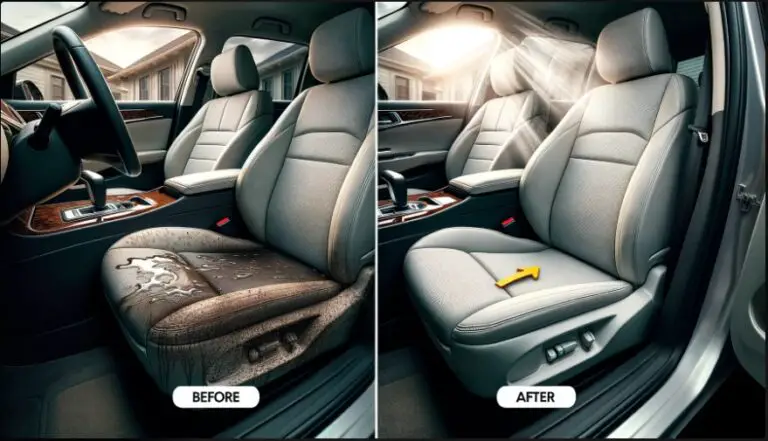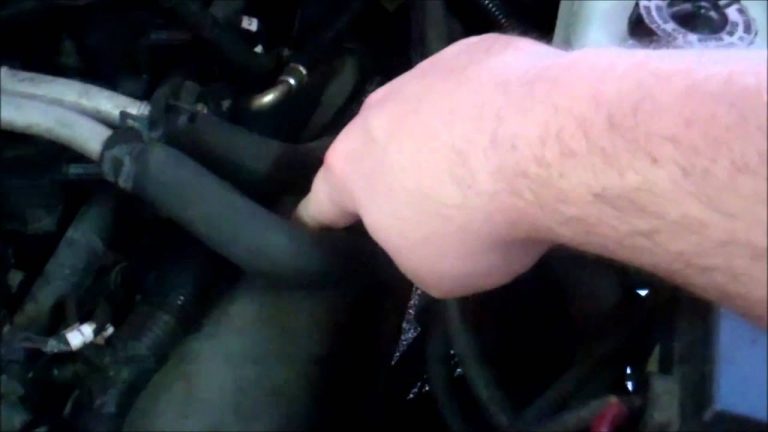Dodge 4.7 Misfire No Codes
A misfire in a Dodge 4.7 engine without codes can be caused by a variety of factors such as spark plug or ignition coil failure, fuel delivery issue, vacuum leak, or a clogged air filter.
It is best to perform a systematic diagnosis starting with simple checks such as spark plugs and air filters, before moving on to more complex systems.
In some cases, a professional diagnostic scan tool may be needed to properly diagnose the problem.
When a Dodge 4.7 engine misfires, it can be a frustrating and potentially costly problem. However, it can be even more confusing when there are no codes present.
This guide will provide an in-depth understanding of the causes, symptoms, and solutions for this issue to help you keep your vehicle running smoothly.
2005 Dodge Ram 1500 4.7L Misfire problem explained
Causes of Dodge 4.7 Misfire with No Codes
Possible Malfunctioning of Ignition System
The ignition system is responsible for providing the spark that ignites the fuel in the engine. If any part of this system is malfunctioning, it can cause a misfire. Common issues with the ignition system include worn spark plugs, a faulty ignition coil, or a malfunctioning distributor cap or rotor.
Fuel Delivery Issues
If the fuel system is not delivering the correct amount of fuel to the engine, it can cause a misfire. This can be caused by a clogged fuel filter, a faulty fuel pump, or a malfunctioning fuel injector. Additionally, using low-quality or contaminated fuel can also cause a misfire.
Issues with the Engine Control Module (ECM)
The engine control module (ECM) is responsible for controlling the engine’s functions, including the ignition and fuel systems. If the ECM is malfunctioning, it can cause a misfire. This can be caused by a problem with the ECM itself, or by a problem with the sensor that sends data to the ECM.
Symptoms of Dodge 4.7 Misfire with No Codes
Reduced Power and Acceleration: One of the most common symptoms of a misfire is a reduction in power and acceleration. This can make it difficult to drive the vehicle, especially when merging onto a highway or climbing a hill.
Rough Idling and Vibration: A misfire can also cause the engine to run rough and vibrate. This can be felt as a shaking or jolting sensation while the vehicle is idling or driving.
Check Engine Light Not Illuminating: Typically, when there is a misfire, the check engine light will come on. However, in some cases, the check engine light may not come on, making it more difficult to diagnose the problem.
Diagnosis and Repair dodge 4.7 misfire no codes
Proper diagnosis is crucial to finding the root cause of the misfire. A skilled mechanic will use specialized diagnostic tools, such as a scan tool or a compression tester, to identify the problem.
Possible Repair Options dodge 4.7 misfire no codes
Repair options will vary depending on the cause of the misfire. Some common repairs include replacing worn or malfunctioning parts, such as spark plugs, ignition coils, or fuel injectors. In some cases, reprogramming the engine control module may be necessary.
Repairing a Dodge 4.7 misfire with no codes may involve a few different steps, depending on the cause of the issue. Here is a step-by-step guide to some possible repair options:
- Inspecting the Ignition System:
The first step in repairing a misfire is to check the ignition system. This includes inspecting the spark plugs, ignition coils, distributor cap, and rotor. If any of these components are worn or malfunctioning, they should be replaced.
- Checking Fuel Delivery:
Next, check the fuel delivery system. This includes inspecting the fuel filter, fuel pressure, and fuel injectors. If the fuel filter is clogged or the fuel pressure is too low, it can cause a misfire. If the fuel injectors are clogged or malfunctioning, they should be cleaned or replaced.
- Inspecting the Engine Control Module:
If the ignition system and fuel delivery system are functioning properly, the next step is to check the engine control module. This component controls the engine’s fuel injection and ignition systems. If it is malfunctioning, it may need to be replaced.
- Check for vacuum leaks:
Another possible cause for misfire can be vacuum leaks. Leaks in the vacuum system can cause a misfire. Inspect the vacuum hoses and connections, and repair or replace any leaks that are found.
- Check Compression:
If the above steps do not solve the problem, then it is necessary to check the compression in the cylinders. This can be done by using a compression tester. If the compression is low in one or more cylinders, it may indicate a problem with the engine’s internal components, such as the piston rings or valves.
- Check the Timing Chain:
If the compression is good and other steps are done then it could be an issue with the timing chain. A stretched or damaged timing chain can cause a misfire and should be replaced.
It is important to note that these are just a few possible repair options and that a skilled mechanic will use specialized diagnostic tools to determine the exact cause of the issue.
It’s always best to consult with a professional mechanic when dealing with an engine issue, as trying to repair a complex system like the engine of a vehicle, without proper knowledge and tools, can result in further damage and costly repairs.
Importance of Using OEM Parts
It is important to use OEM (original equipment manufacturer) parts when repairing a Dodge 4.7 engine. These parts are specifically designed to work with the vehicle and will ensure proper function and longevity.
Prevention and Maintenance dodge 4.7 misfire no codes
Preventing a Dodge 4.7 misfire with no codes from occurring in the first place is always preferable to dealing with the issue after it has happened. Here are a few tips for preventing a misfire:
Regular Maintenance: Regular maintenance is the key to preventing a misfire. This includes regular oil changes, regular inspections of the ignition system and fuel delivery system, and regular engine tune-ups.
Use High-Quality Fuel:
Using high-quality fuel can help prevent a misfire. Low-quality fuel can contain impurities that can clog the fuel injectors and cause a misfire.
Check the Air Filter: A dirty air filter can cause a misfire. The air filter should be checked and replaced as needed.
Keep your Vehicle Running Smoothly: Regularly check for any warning lights or unusual sounds coming from your vehicle. Addressing small issues before they become bigger can prevent a lot of problems.
Regularly Check the Timing Chain: The timing Chain is an important component of the engine, it should be checked regularly and replaced if needed.
By following these tips, you can help prevent a Dodge 4.7 misfire with no codes from occurring and keep your vehicle running smoothly.
It’s always wise to check your vehicle’s owner’s manual for specific information on how to maintain the vehicle and when to schedule regular maintenance. Also, consult with a professional mechanic for regular checkups of your vehicle and to ensure that your vehicle is running at its best.

FAQs:
What could be causing a Dodge 4.7 misfire with no codes?
Possible causes include a malfunctioning ignition system, fuel delivery issues, or a problem with the engine control module.
What are the symptoms of a Dodge 4.7 misfire with no codes?
Symptoms include reduced power and acceleration, rough idling and vibration, and the check engine light not illuminating.
How can I diagnose a Dodge 4.7 misfire with no codes?
A skilled mechanic will use specialized diagnostic tools, such as a scan tool or compression tester, to identify the problem.
How can I prevent a Dodge 4.7 misfire with no codes?
Regular maintenance, using high-quality fuel, and regularly inspecting the ignition system are all important steps in preventing a misfire.
What kind of parts should I use when repairing a Dodge 4.7 misfire with no codes?
It is important to use OEM (original equipment manufacturer) parts when repairing a Dodge 4.7 engine to ensure proper function and longevity.
Conclusion
A Dodge 4.7 misfire with no codes can be a frustrating and potentially costly problem, but by understanding the causes, symptoms, and solutions, you can take steps to prevent and repair the issue. Regular maintenance, using high-quality fuel, and regularly inspecting the ignition system are all important steps in keeping your vehicle running smoothly.
See Also:
- Dodge 4.7 Head Bolt Torque Specs
- Dodge 4.7 Ground Strap Locations
- Dodge 4.7 Engine Interchange Guide
- Diagram Dodge 4.7 Heater Hose Routing
- 4Th Gen Ram Roll Pan
- 4Th Gen Ram Center Console
- 4Th Gen Ram Aux Switches






